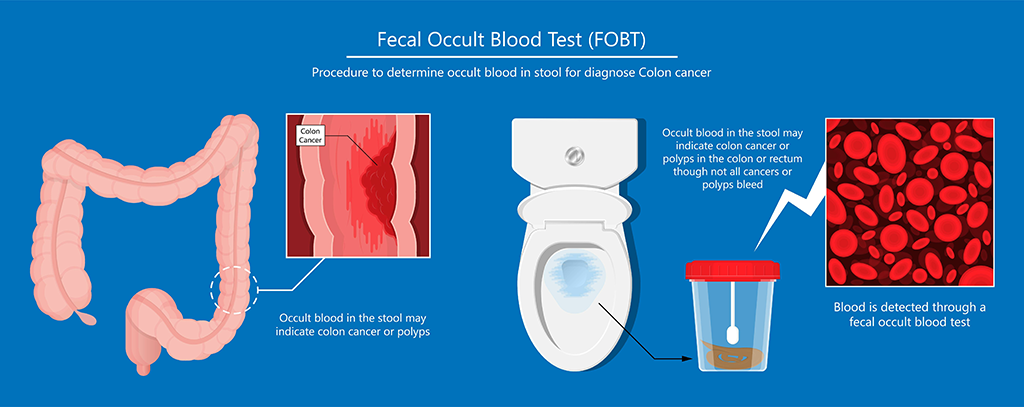


What Is a Fecal Occult Blood Test: Everything You Need to Know
February 16, 2023


How Accurate Is the Mouth Swab Drug Test? Find Out Now!
February 20, 2023Are you considering a 10 panel drug test for your workplace or about to have a test done? Are you wondering if phentermine will show up on the results? Phentermine is one of many drugs that employers and businesses may screen for, but does it actually appear in the results of a 10 panel drug test? Understanding what's tested in these tests, as well as how accurate they are can help answer this question. Does phentermine show up on a 10 panel drug test - let’s find out.
What is Phentermine?
Phentermine is a prescription medication used to treat obesity and weight management. It works by stimulating the central nervous system, which increases heart rate and blood pressure while decreasing appetite. This makes it an effective appetite suppressant for those looking to lose weight or maintain their current bodyweight.
Phentermine is available in both immediate-release and extended-release forms, with the latter providing more gradual effects over time. The drug can be taken orally as a tablet or capsule, or injected intravenously as a solution.
Common side effects of phentermine include dry mouth, insomnia, restlessness, dizziness, headache, constipation and diarrhea. More serious side effects may include chest pain or shortness of breath; signs of an allergic reaction such as hives; swelling of the face, lips tongue or throat; changes in vision; confusion; agitation; depression; unusual thoughts or behavior; tremor (shaking); uncontrolled muscle movements (tics); difficulty urinating or increased urination frequency at night.
It's important to note that phentermine should not be combined with other medications without consulting your doctor first - this includes over-the-counter drugs like cold medicines and herbal supplements - due to potential interactions that could cause adverse reactions when taken together. Additionally, pregnant women should avoid taking phentermine altogether due to possible harm to unborn babies if taken during pregnancy.
Finally, it is important for users of phentermine to follow all instructions given by their doctor regarding dosage amounts and timing in order to get the most benefit from this medication while minimizing any risks associated with its use.
Phentermine is a prescription medication that can be used to treat obesity and help with weight loss. It is important to understand how this drug interacts with other substances, including drug tests, so let's explore whether phentermine shows up on a 10 panel drug test.
Does Phentermine Show Up on a 10 Panel Drug Test?
It is classified as an appetite suppressant, meaning it reduces the amount of food you eat by decreasing your hunger. Phentermine has been known to cause false positive results on 10 panel drug tests for amphetamines, which can lead to serious consequences if not addressed quickly.
A 10 panel drug test screens for ten different drugs including marijuana, cocaine, opiates (heroin), phencyclidine (PCP), amphetamines/methamphetamines (including Ecstasy), benzodiazepines (Valium and Xanax), barbiturates, methadone, propoxyphene (Darvon) and Quaaludes. The presence of any one or more of these substances in the body will be detected through this type of testing.
False positives are possible with any type of drug screening process due to cross-reactivity between similar compounds that may be present in other medications or supplements taken by the individual being tested. In particular, certain types of cold medicines have been known to trigger false positives when testing for opiates or amphetamines on a 10 panel test. Phentermine has also been found to produce a false positive result when screened for amphetamine use because it contains some similar chemical structures that can confuse the testing equipment into thinking they are detecting actual methamphetamine use instead.
The accuracy rate of a 10 panel drug test varies depending on how sensitively calibrated the equipment is set up and what kind of sample was collected from the person being tested; urine samples tend to be more reliable than saliva or hair follicle samples due to their higher concentration levels but all three methods can still yield inaccurate results if not properly handled during collection or analysis processes. False positives should always be investigated further before making any decisions based off them since they could potentially lead someone down an incorrect path without proper verification first.
In terms of how long Phentermine stays in your system after taking it orally, typically it is about 24 hours but can be up to 3 days (more on this below). However, this timeframe can vary depending on factors such as age, metabolism rate and overall health condition. Therefore, it is best not to take chances when dealing with potential workplace substance abuse screenings where accuracy matters most.
It is important to understand what drugs are tested for in a 10 panel drug test, as this will determine whether phentermine will show up on the test. Next, we'll look at what drugs are included in this type of drug testing.
What Drugs are Tested for in a 10 Panel Drug Test?
A 10 panel drug test is a comprehensive screening for the presence of drugs in a person’s system. It typically tests for the following substances: amphetamines, cocaine, marijuana, opiates (heroin and codeine), PCP (phencyclidine), barbiturates, benzodiazepines, methadone, propoxyphene and alcohol.
Alcohol consumption should always be avoided before taking any kind of drug test since even small amounts will show up on most panels regardless of whether it was consumed legally or illegally. Therefore, it is important to abstain from alcohol prior to the test in order to ensure accurate results. It is important to note that these tests do not detect all types of drugs so they may not pick up certain substances such as designer drugs like bath salts or synthetic cannabinoids like K2/Spice unless specifically requested by the testing facility.
How Accurate are Drug Tests?
The accuracy of drug tests depends on several factors including the type of test being performed and how it is administered.
Urine Tests:
Urine drug testing is one of the most commonly used methods for detecting drugs in an individual’s system. Urine tests are relatively accurate but can produce false positives due to cross-reactivity from certain medications or substances that may be present in the sample being tested. To reduce this risk, quality control measures should be taken when collecting and processing urine samples such as checking expiration dates on reagents used for testing and ensuring that all equipment is properly calibrated before use.
Saliva Tests:
Saliva drug testing has become increasingly popular due to its non-invasive nature and quick turnaround time for results. While saliva drug tests are generally considered accurate when performed correctly, they may not always detect recent drug use since some drugs only remain detectable in saliva for a short period of time after ingestion. Additionally, if not collected properly (i.e., swabbing too deep into the mouth), there is potential for contamination which could lead to inaccurate results.
Hair follicle testing involves taking a small sample of hair from an individual’s head or body and analyzing it for traces of drugs that have been ingested over a longer period of time than what would typically show up on urine or saliva tests (up to 90 days). Hair follicle testing is considered more reliable than other forms due to its ability to provide evidence that cannot easily be tampered with, like urine or saliva samples can. However, false positives can still occur due to environmental exposure such as secondhand smoke inhalation which could lead to inaccurate results if proper precautions are not taken during collection and testing processes.
Blood Tests:
Blood drug tests provide very accurate information about whether someone has recently consumed any illicit substances; however, they require specialized equipment and training so they are usually only done under specific circumstances such as legal proceedings. Additionally, blood draws carry certain risks associated with them so they should only be done when absolutely necessary by trained professionals who understand proper safety protocols related to drawing blood from individuals suspected of having ingested any type illegal substance(s).
Drug tests are generally reliable when used properly, however there can be some false positives and negatives. Therefore, it is important to understand how long substances like phentermine stay in your system before making any decisions based on the results of a drug test.
How Long Does Phen
termine Stay In Your System?Phentermine is a stimulant drug that is commonly used to treat obesity. It works by suppressing the appetite and increasing energy levels, allowing people to eat less and exercise more. While it can be an effective weight loss aid, it also has some potential side effects including insomnia, anxiety, and increased heart rate.
The amount of time phentermine stays in your system depends on several factors such as age, metabolism rate, health condition etc. Generally speaking though, phentermine can stay in your system for up to 3 days after taking the last dose. This means that if you take a 10 panel drug test within this period of time then there is a chance that it will show up positive for phentermine use.
It’s important to note however that most standard 10 panel drug tests do not specifically look for phentermine but rather its metabolites which are substances produced when the body breaks down drugs or other chemicals. Therefore even if you have taken phentermine recently there may still be no trace of it left in your system by the time you take the test depending on how quickly your body metabolizes it.
Although Phentermine does not appear directly on most standard 10-panel drug tests due to its metabolites being tested instead, those who have recently taken this medication should still be aware that they may fail their screening if traces remain in their systems at testing time.
The length of time that phentermine stays in your system varies depending on the individual, but it is typically detectable for a few days. Now let's take a look at whether or not phentermine shows up on a 10 panel drug test.
How Long Does Phentermine Stay In Your System?
Phentermine is a stimulant drug that is commonly used to treat obesity. It works by suppressing the appetite and increasing energy levels, allowing people to eat less and exercise more. While it can be an effective weight loss aid, it also has some potential side effects including insomnia, anxiety, and increased heart rate.
The amount of time phentermine stays in your system depends on several factors such as age, metabolism rate, health condition etc. Generally speaking though, phentermine can stay in your system for up to 3 days after taking the last dose. This means that if you take a 10 panel drug test within this period of time then there is a chance that it will show up positive for phentermine use.
It’s important to note however that most standard 10 panel drug tests do not specifically look for phentermine but rather its metabolites which are substances produced when the body breaks down drugs or other chemicals. Therefore even if you have taken phentermine recently there may still be no trace of it left in your system by the time you take the test depending on how quickly your body metabolizes it. Although Phentermine does not appear directly on most standard 10-panel drug tests due to its metabolites being tested instead, those who have recently taken this medication should still be aware that they may fail their screening if traces remain in their systems at testing time. The length of time that phentermine stays in your system varies depending on the individual, but it is typically detectable for a few days. Now let's take a look at whether or not phentermine shows up on a 10 panel drug test.
Conclusion
In conclusion, phentermine is a prescription medication used to treat obesity and can be detected in a 10 panel drug test. While it is not one of the drugs tested for in this type of test, its metabolites may still show up on the results. It's important to understand that drug tests are not always 100% accurate and the amount of time phentermine stays in your system varies from person to person. If you have any questions about whether or not does phentermine show up on a 10 panel drug test, it's best to consult with your doctor or healthcare provider for more information.





